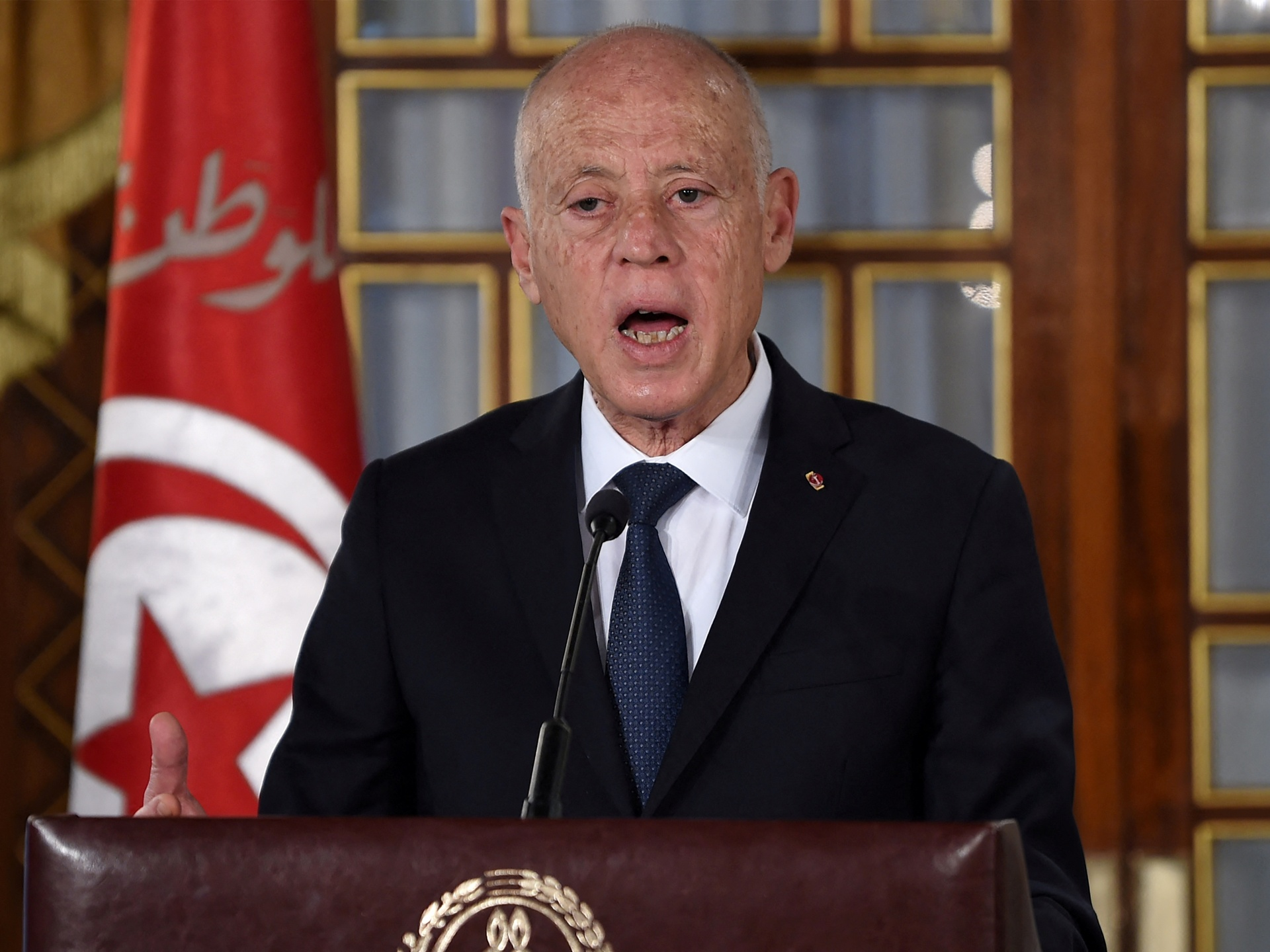Tunis, Tunisia – A leading human rights group has slammed the use of a Tunisian law criminalising the spreading of “fake news” to stifle free speech in the country.
The Geneva-based International Commission of Jurists (ICJ) has criticised the implementation of the legislation, issued directly by President Kais Saied following his 2021 suspension of parliament, which they claim allows him to criminalise any type of electronic communication that he objects to.
Decree 54, issued by President Kais Saied in September 2022, criminalises using electronic equipment to share false information, part of what his supporters have viewed as an important push against attempts to deceive the public.
However, since its introduction, the decree has been utilised to target a number of Saied’s opponents and critics, with several currently in prison as a result.
The principal focus of the ICJ’s criticism is Article 24 of the decree, allowing up to five years imprisonment and a fine of up to $15,000 for anyone found to be spreading “false information and rumours” online. Critically, that sentence doubles if the offending statement is made about a state official.
However, critics have pointed out that by failing to define precisely what constitutes false information or rumour, the decree has gifted lawmakers an easy tool with which to penalise critical speech.
Other provisions allowed for the security services to search telecommunication devices or computers for material considered to be in breach of the Decree and for devices to be seized and data intercepted if authorities believed there was probable cause.



Yes I agree, having laws against fake-news is really important now that A.I can quickly write bogus stories and image/video deep fakes are easily made